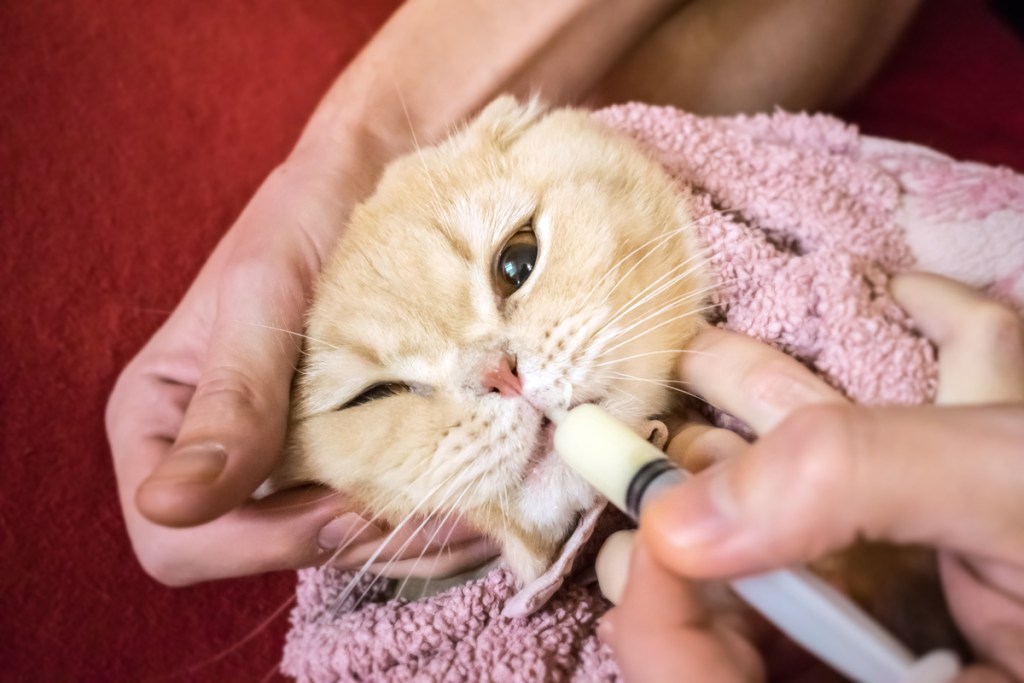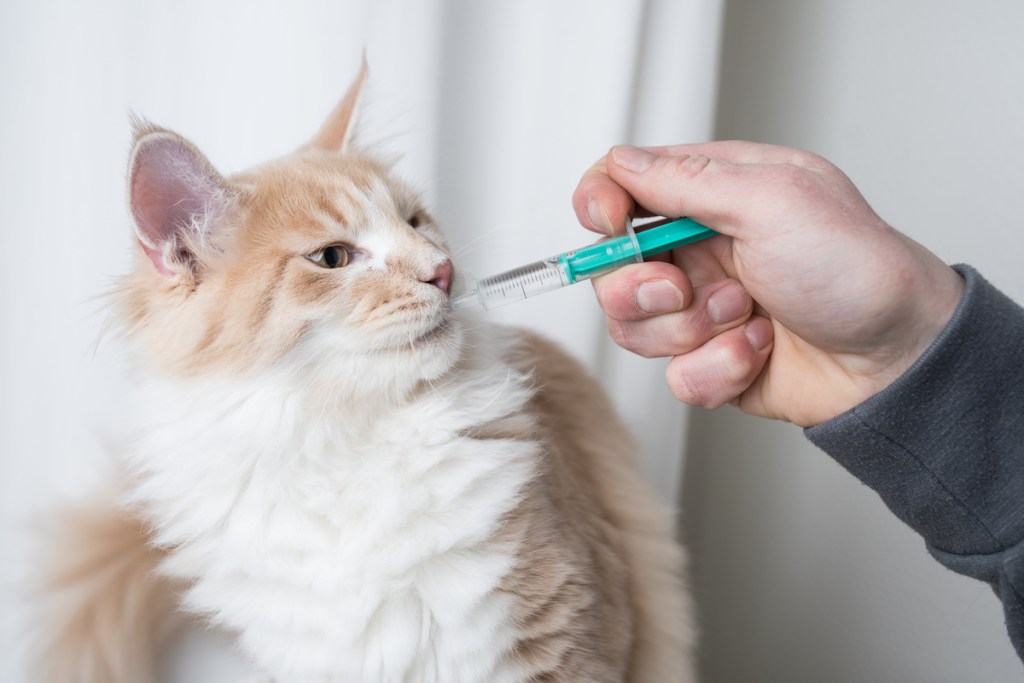While most cats will do just fine with regular cat food throughout their lives, sometimes cats need a little extra TLC. If your cat is recovering from an illness or surgery, she might not be all that excited about eating her food. In some situations, your vet might prescribe a liquid diet for your cat. You’ll need to give your cat some extra care, but with liquid cat food, you can get that important nutrition into your cat, even if she’s not feeling hungry. Whether your vet has just recommended a liquid diet or you want to research them just in case, knowing the details of feeding your cat liquid food can help you be prepared if your cat ever needs this specialized care.
When to feed a liquid diet
Your vet might recommend that you feed liquid cat food in several different instances:
- Orphaned kittens might need to be fed liquid milk replacer.
- More commonly, a cat who’s recovering from surgery or an illness might lose their appetite and need a liquid diet for a few days as they regain their strength.
- Some older cats who are unwell or in pain might also benefit from a liquid diet.
In most cases, a liquid diet for cats isn’t a long-term solution and is instead intended to get a cat through a rough period so they can regain their strength and return to their typical diets. However, cats who have cancer or kidney disease might benefit from a long-term liquid diet. Liquid diets should only be fed under your vet’s supervision and instruction since a cat who is unwell enough to require a liquid diet will probably require other treatments and careful monitoring.

Potential liquid diets for cats
There are many commercially available liquid diets for cats, and they’re formulated to ensure your cat gets the nutrition she needs. If you’re looking for a milk replacer for kittens, Whiskas Catmilk for Cats and Kittens is easy to digest and comes already formulated as a liquid.
Most liquid diets intended for adult cats require a prescription, and your vet will surely recommend the one they think is best for your cat.
You may also be able to create your own liquid diet for your cat. You can puree traditional wet cat food in a blender and add some water to create more of a broth. This is ideal because you retain the balanced nutrition that already exists in the cat food. Alternatively, your vet might recommend using low-sodium chicken broth as a short-term solution. If you’re considering making your own liquid diet, be sure to consult with your vet to verify that it will meet your cat’s nutritional requirements.

How to feed a liquid diet
In most cases, you may need to syringe-feed your cat a liquid diet, especially as she is just starting to recover. Your vet will provide you with a syringe and detailed instructions on how much to feed your cat and when. Syringe feeding will take time, and it’s a temporary solution that you might need to perform over a few days. You’ll also want to provide your cat with free access to water.
As your cat regains her strength, she may start to feel strong enough to eat on her own. Warming up her liquid food can make it more tempting, encouraging her to eat. A few seconds in the microwave will usually do the trick, but be sure to stir the food thoroughly and carefully check its temperature before giving it to your cat.
Feeding a liquid diet requires some extra time and patience, but it’s often a necessary aspect of caring for your cat when she’s unwell. If you ever have questions about the diet or your cat’s health, talk to your vet right away. A cat who doesn’t eat can quickly become dehydrated and lose strength, so it’s important to get your cat the care she needs. By choosing the right liquid diet and following your vet’s instructions, you may be able to give your cat all the care she needs right at home. However, in some cases, cats may need to return to the vet for IV treatments and other supportive care to get them through a tough health period.



